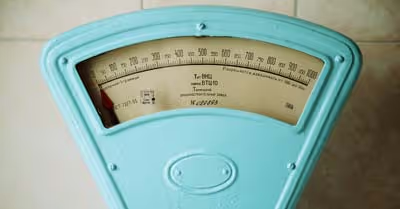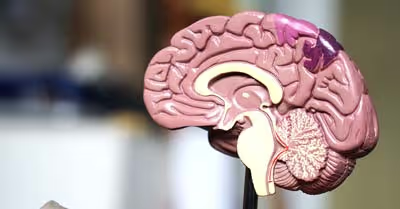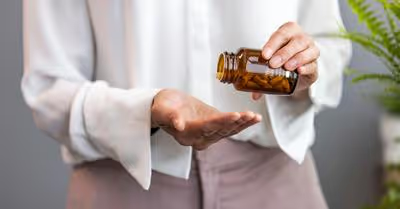Table of Contents
How to Lose More Weight After the HCG Diet
To start, let’s break down exactly what this diet entails and how it works to help with weight loss, so you can better understand its effectiveness, and how you can get the optimal results from it for yourself, your body, and your weight loss goals.
The HCG – or Human Chorionic Gonadotropin – hormone is found in all of us in trace amounts but, during pregnancy, it’s much more prominent in women. In fact, it’s the hormone that shows up on pregnancy tests and lets a woman (or her doctor) know she has conceived.
Though HCG has become widely known as the “pregnancy hormone”, it has made a big splash in the world of weight loss. Studies have shown that, because the HCG hormone seems to stimulate a person’s metabolism, introducing it into a non-pregnant person’s system will allow them to burn calories faster as well as need fewer calories, without ever feeling hungry.
A diet plan that implements HCG means you will spend a period of time getting injections of HCG, (and should only do so under a physician’s instruction.) During this time, you will also substantially limit your calories, usually to around 500 a day.
This sounds drastic but can be done because the HCG hormone allows you to not feel hungry, even on such a low caloric intake.
You can’t sustain this forever though, and still be healthy. Therefore, after eight weeks, most physicians who are monitoring your injections and weight loss will have you stop taking HCG.
This is when things can get tricky. How can you continue to lose weight once you no longer have the HCG in your system? For those who have significant weight to lose, you may worry that you will just plateau. Or, that the weight will start to return.
But don’t worry…there are definitely steps you can take to ensure this isn’t going to happen to you.
1. Keep Monitoring Your Calories
After going through a period of intense caloric reduction, you are going to need to start increasing the number of calories you consume during the day after you stop taking the HCG hormone.
Engaging in a weight loss program that only suggests you eat 500 calories a day is super restrictive. Our bodies aren’t made to function on a caloric intake that low for long periods of time. Calories give us the energy to function – physically and mentally – and they allow our organs to work appropriately. Consuming only 500 calories a day is not sustainable for a long period of time and should only be done when you are under the care of a physician.
That said, if you’ve been on the HCG diet, you will want to be thoughtful as you start to bring more calories back into your daily diet.
There are two main reasons for this. One, by introducing “too-much-too soon”, your body is going to get confused and desperately try to hang on to those extra calories. Because an intensely calorie-restrictive diet (like the HCG diet) will make your body feel as if it’s been being starved, it makes sense that if you start eating three cheeseburgers and two large orders of fries every day, your body is going to try and hang on to that extra fuel, convinced it may not get it again for a while.
The best course of action is to start slow. Most experts suggest adding in about 200 calories a week. If you want to continue to lose weight, continue to keep the total calories below what is suggested to maintain your current weight. (For women, that’s between 1600-2400, and for men, that’s between 2,000-3000 calories per day.)
2. Keep Steering Clear of Certain Foods
Calories aren’t the only thing that will matter if you want to continue to lose weight after the HCG diet.
When you embark on a diet program such as the HCG one (assuming you’re doing it with a physician’s involvement), you will not only learn how to radically cut your calories for a period of time, but you’ll also learn what types of foods have the type of calories that will give you the biggest and longest bang for your buck.
For example, if you are only consuming 500 calories a day while receiving HCG hormone injections, you will soon learn that those precious calories shouldn’t come from processed foods, sodas, or alcohol – things that are considered “empty calories” and don’t give you much fuel to function normally.
On the other hand, foods that have high levels of protein – like grilled chicken breast or avocados – will allow you to feel full longer, and provide you with the nutrients you need to sustain a drastic calorie reduction and still function, at least for a short period of time. And foods that are rich in nutrients, like spinach leaves, will allow you to eat quite a bit before hitting your calorie goal and will keep you chock-full of the necessary vitamins and minerals you need to stay healthy.
Bottom line – the only way you can maintain your weight loss, or keep losing weight after an HCG diet is to seriously look at your eating habits and decide what shouldn’t be added back into your daily menu. Cookies, chips, soda, french fries…these are all things that shouldn’t get to take up a lot of your daily consumption. Or – they should at least play only a very minor role.
3. Move That Body!
Remember the old adage….calories in, calories out.
A weight loss program like the HCG hormone diet is pretty intense and can be taxing on your body when you are receiving the injections and limiting your calories so drastically. Because of this, most physicians will recommend you not exercise at the same time.
Exercise is important to our bodies, but can also be taxing to them. Even though exercise is necessary to strengthen our muscles, ligaments, joints, and organs it’s also a strenuous activity. When you are restricted to eating around 500 calories a day, it’s going to be hard to ask your body to perform on a cardio level.
But – once you’ve completed the series of injections and are no longer restricted to just 500 calories, it’s important to introduce an exercise program into your life.
This is important for a whole host of reasons. Exercise makes us feel mentally good. It keeps our bodies strong, flexible, and helps with everything from our posture to our digestive systems. Exercise is good for the mind, heart, and soul.
After a weight loss program like the HCG diet, exercise is also good at helping maintain the weight you’ve lost and helping you continue to lose. As you add in those needed calories that I mentioned above, you can feel more comfortable doing so if you also know that some of them will be burned when you take a walk, go for a hike, ride your bike or go to the gym.
You know your body has been depleted of some necessary nutrients during the HCG diet in order to drop unwanted pounds. But, if you incorporate exercise (even light exercise!) in to the period after the HCG program, you will find it much easier to keep your weight off and continue to lose weight if exercise is also part of the package.
And, as I said, don’t worry about starting small. In fact, after a calorie restrictive diet like the HCG program, you don’t want to go out and run your first marathon. Be kind to yourself and your new body. Go for a few long walks, maybe try a bike ride or try a low-impact class at the gym. Ease back in slowly, and you’ll be amazed at your ability to stick with it for the long haul.
Recent Articles















